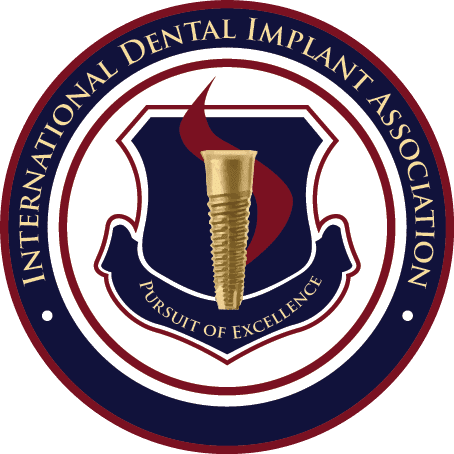Below is a list of frequently asked questions about our office. If you have any other questions, please contact us or call our office directly and someone will assist you as soon as possible!
What is a dental implant?
A dental implant is a small titanium screw that serves as the replacement for the root portion of a missing natural tooth. The implant is placed in the upper or lower jaw. It will bond with the bone over time and thus serve as an anchor for the replacement tooth. Dental implants can be used to replace a single lost tooth or many missing teeth.
Are dental implants successful?
With more than three decades of clinical experience and over a million patients treated, statistics confirm a success rate of nearly 95 percent for individual dental implants*, even higher for the bridges they support. * Results based on dental implants and bridges remaining and in function over a five-year period.
How much do dental implants cost?
The cost of dental implants will depend on several factors, including the number of teeth being replaced and the number of dental implants required to support your replacement teeth. To obtain a specific fee estimate, it is necessary to have a doctor examine your mouth. After a thorough diagnostic examination, your Prosthodontist or Oral Surgeon will recommend the treatment that is best for you. Call (864.627.9111) for a consultation.
Will dental implants work for me?
Anyone who is missing one or more teeth due to injury, disease or decay is a candidate for dental implants. Using new techniques dental implants can be inserted on almost anyone. Only those patients who are on high doses of steroids and those with uncontrolled diabetes are not good candidates for dental implants.
Old age a problem?
Occasionally, older patients express concern that their age may prevent them from enjoying the benefits of dental implants. However, health is more of a determining factor than age. If you’re healthy enough to have a tooth extracted, you’re probably healthy enough to receive dental implants. Certain chronic diseases may contraindicate dental implant treatment. Your Prosthodontist or Oral Surgeon will determine if you are a candidate for dental implants after a careful evaluation of your dental and health history.
What are the advantages of dental implants over dentures or a bridge?
Improved appearance: When you lose entire tooth – crown and root – shrinkage of the jawbone may cause your face to look older. Dental implants can stop this process. A traditional denture or bridge doesn’t. Maintained natural teeth: With traditional practices, two teeth adjacent to a missing tooth must be ground down to anchor a bridge. Dental implants often eliminate the need to modify healthy teeth. Permanent solution: Fixed Dental Implant crowns or Bridges. There are no loose parts to worry about. The implant is stable and comfortable. No adjustment is need after installation. Normally, it will serve its owner for life.
What are implant supported dentures?
Dentures that are supported by Implants can be quite stable. Adjustments of these dentures may be required from time to time. Attachments need to be changed every 12-18 months. Food can get under the dentures and can cause gum irritations.
What are the differences between an dental implant and a bridge?
An implant acts a natural tooth replacement. An implant allows you to actually feel when you bite, and provides a sense of security that your teeth are in place. The bridge is usually made to attach permanently to the dental implants and replaces any missing teeth you have.
How will dental implants affect my life?
Implant-supported replacement teeth look, feel and function like natural teeth. This means that you can eat and drink whatever you are used to. But most importantly, dental implants often improve quality of life in a very concrete way. People who have felt embarrassed and worried because of their tooth problems are often overwhelmed by what new permanent teeth can do for their self-esteem.
Will my new teeth (i.e., implants) look natural?
When dental implants are used in combination with modern restorative dentistry, their appearance, comfort and function are very likely to exceed your expectations.
Will I be able to chew with the same force and pressure I use with my natural teeth?
Yes. Following a brief adaptation period, chewing capacity is comparable to that of natural teeth.
How much time is required for an dental implant placement?
Traditionally, the procedure has been performed in two steps. The dentist began by installing the dental implant, which was left for from three to six months to heal and integrate with the jawbone. During the healing period, the patient was given a temporary prosthesis until the permanent crown could be put in place.
Is the dental implant treatment painful?
Just as with any surgery, there can be some discomfort. Anesthesia and patient sedation are used to eliminate any discomfort at the time of the procedure. Most patients report that they were much more comfortable following the procedure than they had anticipated. Your doctor will prescribe medications to ease any discomfort that may occur. Many patients report very little discomfort especially with the new minimal invasive techniques.
How will I feel after the dental implant treatment?
It is normal to have some small bruises and swelling in the gum and soft tissues. But usually the discomfort, if any, is treated with an ordinary painkiller. You should expect to be able to work in 2-3 days.
How will I care for my dental implants?
Your new teeth must be cared for and checked regularly, just like your natural teeth. Brush and floss as recommended by your dentist or dental hygienist. See your dentist in every sixth months, or more frequently if so advised.
What if I do not have any bone?
Most people have some bone. It’s very rare that you have insufficient bone to insert dental implants.
Do you use zirconium abutments?
Yes. We use them for single implants especially in the front part of the mouth where the aesthetics is most important.
What will replace my tooth while the dental implants are healing?
If you have a few missing teeth a fixed provisional bridge can be attached to the implants while they are healing. Generally, it is recommended that a patient eat a soft diet for at least 6 weeks to allow the healing to take place. If you have one tooth missing which is in the front part of your mouth, we recommend some type of a removable bridge, such as a retainer which will replace the missing teeth during the healing period.
How long does a dental implant last?
With proper care, it is not unreasonable to expect your dental implant to last for the remainder of your lifetime.





